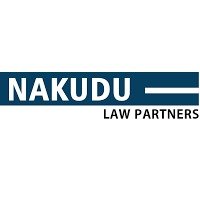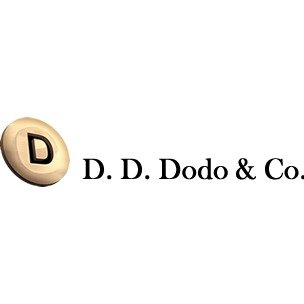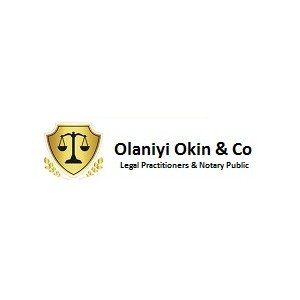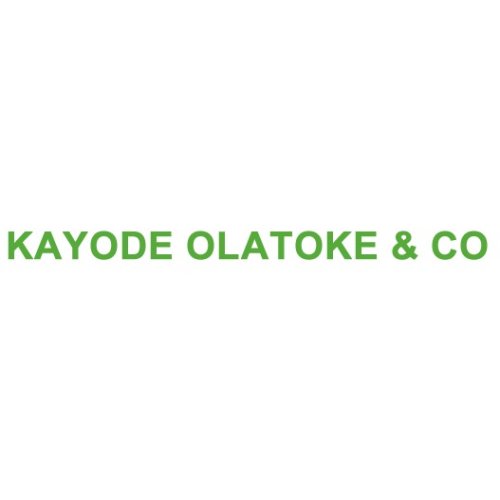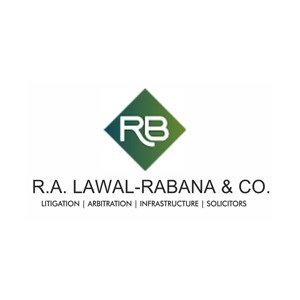Best Debt Capital Markets Lawyers in Nigeria
Share your needs with us, get contacted by law firms.
Free. Takes 2 min.
Or refine your search by selecting a city:
List of the best lawyers in Nigeria
Legal guides written by Adeola Oyinlade & Co:
- Procedure and Requirements for Work Permit and Visas in Nigeria
- The Step-By-Step Procedure of How to Apply for Microfinance Bank License Online in Nigeria
- How to Ensure the Smooth Recognition and Enforcement of Foreign Judgments in Nigeria
About Debt Capital Markets Law in Nigeria
Debt Capital Markets (DCM) in Nigeria refer to the platform, laws, and rules that govern the issuance, structuring, and trading of debt instruments such as bonds, notes, and other fixed income securities by corporations, financial institutions, and government entities. The DCM facilitates fundraising for public and private projects by allowing entities to borrow funds from investors in exchange for periodic interest payments and the eventual repayment of principal. DCM activities are regulated primarily by the Securities and Exchange Commission (SEC), Nigerian Exchange Limited (NGX), and other related authorities. The Nigerian government and corporate organizations use the market to support infrastructure, public finance, and corporate expansion.
Why You May Need a Lawyer
Legal professionals play a crucial role in Debt Capital Markets transactions in Nigeria. You may need a lawyer if you are:
- Looking to issue corporate or government bonds
- Interested in investing in debt securities and need due diligence
- Managing regulatory compliance for listed securities
- Seeking to understand the structure, risks, and obligations involved with debt instruments
- Negotiating with creditors or managing debt restructuring
- Involved in the documentation or drafting of offering circulars and prospectuses
- Ensuring adherence to anti-money laundering and disclosure requirements
- Dealing with the enforcement of security interests in case of default
A knowledgeable lawyer can safeguard your interests, ensure regulatory compliance, and help you avoid costly legal mistakes throughout any DCM transaction.
Local Laws Overview
Several key laws and regulatory frameworks govern Debt Capital Markets activities in Nigeria:
- Investment and Securities Act (ISA) 2007 - The primary legislation governing the issuance and trading of securities, including debt instruments. It empowers the SEC to regulate market activities.
- Securities and Exchange Commission (SEC) Rules and Regulations - These rules lay out procedures for approval and registration of debt securities, continuous disclosure, reporting, and compliance obligations.
- Nigerian Exchange Limited (NGX) Listing Rules - These rules set out specific requirements for listing debt securities on the exchange, including minimum capitalization, disclosure, and periodic reporting standards.
- Companies and Allied Matters Act (CAMA) 2020 - It outlines rules for company formation, board obligations, and requirements for issuing debt, including shareholder approvals where necessary.
- Central Bank of Nigeria (CBN) Guidelines - For financial institutions and banks, the CBN issues regulations that affect debt issuance and investments.
- Federal and State Government Laws - These can affect sub-sovereign bond issuance and related processes.
Market participants must also comply with anti-money laundering (AML) and combating financing of terrorism (CFT) requirements under Nigerian law. Legal advice is essential to navigating the complex regulatory environment and regulatory changes.
Frequently Asked Questions
What is a debt capital market?
A debt capital market is a financial marketplace where entities raise funds through the issuance of debt securities like bonds, notes, and debentures, which investors buy for returns in the form of interest payments.
Who regulates debt capital markets in Nigeria?
The Securities and Exchange Commission (SEC) is the main regulatory body, along with the Nigerian Exchange Limited (NGX) and, for financial institutions, the Central Bank of Nigeria (CBN).
Who can issue bonds in Nigeria?
Federal and state governments, government agencies, corporate organizations, and some financial institutions can issue bonds in Nigeria, subject to meeting regulatory requirements.
What are the requirements for issuing bonds in Nigeria?
Issuers must meet the requirements set out by the SEC and NGX, including minimum capitalization, approval of offering documents, fulfillment of disclosure obligations, and, in some cases, credit ratings from approved agencies.
What is the approval process for a debt instrument?
The process often involves preparing detailed documentation, obtaining shareholder and board approvals, registering the offering with the SEC, and, if listing on the exchange, obtaining NGX approval.
What are the investor protection measures in place?
Investor protection includes mandatory disclosures, periodic reporting, ratings by independent agencies, Trustee monitoring, and regulatory oversight by the SEC.
How are disputes resolved in the debt capital market?
Disputes can be resolved through negotiation, arbitration, litigation, or mediation, depending on contractual terms and regulatory guidelines.
Are there any tax considerations for bond issuers and investors?
Yes, tax incentives may be granted for certain bonds, especially those for infrastructure projects, but legal and tax advice is important as tax laws continue to evolve.
What happens if a bond issuer defaults?
In case of default, trustees may enforce the security on behalf of investors, and legal action may be initiated to recover funds. The process is typically governed by the terms of the trust deed and applicable laws.
How can a lawyer help with debt capital market transactions?
A lawyer can ensure regulatory compliance, conduct due diligence, draft and review necessary documents, advise on structuring, manage negotiations with investors or regulators, and represent parties in the event of disputes.
Additional Resources
For more information and support regarding Debt Capital Markets in Nigeria, consider reaching out to the following:
- Securities and Exchange Commission (SEC) Nigeria
- Nigerian Exchange Limited (NGX)
- Central Bank of Nigeria (CBN)
- Bond Trustees Association of Nigeria
- Debt Management Office (DMO) Nigeria
- Nigerian Bar Association - Section on Business Law
- Licensed credit rating agencies (for guidance on ratings and due diligence)
Next Steps
If you are considering any activity within the Debt Capital Markets or require advice regarding compliance, issuance, investment, or dispute resolution, follow these best practice steps:
- Identify your specific needs - whether you are an issuer, investor, or advisor.
- Gather all relevant documents, including financial statements, company records, or investment information.
- Consult a qualified lawyer with experience in Debt Capital Markets law in Nigeria.
- Discuss your goals and any concerns you may have regarding regulatory compliance, documentation, diligence, or dispute processes.
- Follow your lawyer's advice on conducting transactions, meeting deadlines, and handling documentation with the regulatory authorities.
- Stay up to date with changes in legislation and regulations that could impact your role in the market.
Engaging a lawyer early in the process will help ensure a smooth transaction and strong legal protection throughout your involvement with Debt Capital Markets in Nigeria.
Lawzana helps you find the best lawyers and law firms in Nigeria through a curated and pre-screened list of qualified legal professionals. Our platform offers rankings and detailed profiles of attorneys and law firms, allowing you to compare based on practice areas, including Debt Capital Markets, experience, and client feedback.
Each profile includes a description of the firm's areas of practice, client reviews, team members and partners, year of establishment, spoken languages, office locations, contact information, social media presence, and any published articles or resources. Most firms on our platform speak English and are experienced in both local and international legal matters.
Get a quote from top-rated law firms in Nigeria — quickly, securely, and without unnecessary hassle.
Disclaimer:
The information provided on this page is for general informational purposes only and does not constitute legal advice. While we strive to ensure the accuracy and relevance of the content, legal information may change over time, and interpretations of the law can vary. You should always consult with a qualified legal professional for advice specific to your situation.
We disclaim all liability for actions taken or not taken based on the content of this page. If you believe any information is incorrect or outdated, please contact us, and we will review and update it where appropriate.
Browse debt capital markets law firms by city in Nigeria
Refine your search by selecting a city.








